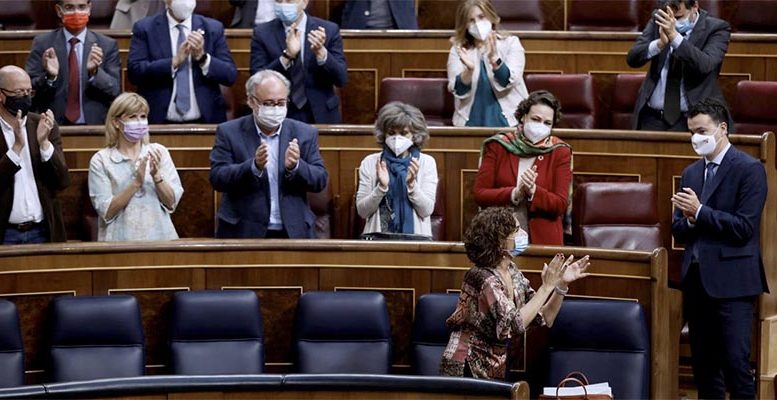Yesterday, the Spanish Parliament rejected, with a large majority – greater than that of the investiture – the complete amendments to the 2021 budget. It is an important step towards political stability and the possibility of creating an economic policy to fight the crisis.
The rejection of the complete amendments is key because it was precisely the loss of this vote in early 2019 that forced Pedro Sánchez to dissolve Parliament and call a general election. This situation has not been repeated because Catalonia’s ERC and centrist Ciudadanos have not presented amendments this time. Once this vote is over it is likely, though certainly not easy, that the government will be able to approve the budget by end- year or early 2021. It would be essential for Spain to show the European institutions and the markets that it is a responsible country.
So it seems we will have a budget. Okay. But will they be the right ones for this time? The accounts show a significant increase in public spending, which is essential to reactivate the economy and tackle the social crisis. At this point, the main criticism is the linear increase of 0.9% in civil servants’ salaries when prices are stagnant. The Governor of the Bank of Spain has stated it would be better to have raised the salary of some officials (for example, health staff) and frozen it for the rest. The criticism has an economic logic, but politics (and budgets are politics) has other conditions. Especially for a left-wing coalition government, without much internal unity and without a parliamentary majority, facing a strong right-wing opposition: demagogy prevails. And there are many public employees.
The big criticisms are therefore focused on the fact that revenues are inflated by an optimistic forecast for growth and so the deficit and the increase in public debt will be greater than expected. It may be, but the reality is that no one is capable of accurately predicting next year’s growth, which will depend on the duality pandemic-vaccine. Moreover, a hypothetical upwards deviation in the 2021 deficit would not be so serious in the current context. Interest rates are low or negative (Germany, for example, is increasing its public revenue by getting into debt). And the ECB is willing to finance because the enemy to be beaten is the collapse of the economy.
Another criticism is that taxes are not being reduced (Germany has temporarily lowered VAT) and that there are even some increases. Spain is not Germany and in the medium term, the fixing of the deficit will also require more (and well researched) fiscal pressure. Growth and possible spending limitations will not be enough. And the government must know that dogmatism on direct taxes (supposedly always progressive) and indirect taxes (reactionary), would not be the optimal way to face it.
It is possible that, from the economic point of view, the Budget can be substantially improved. But we have the government that we have, PSOE with Podemos. So taking into account this starting point, the accounts for 2021 – in the midst of great world uncertainty – are far from being the worst possible.





